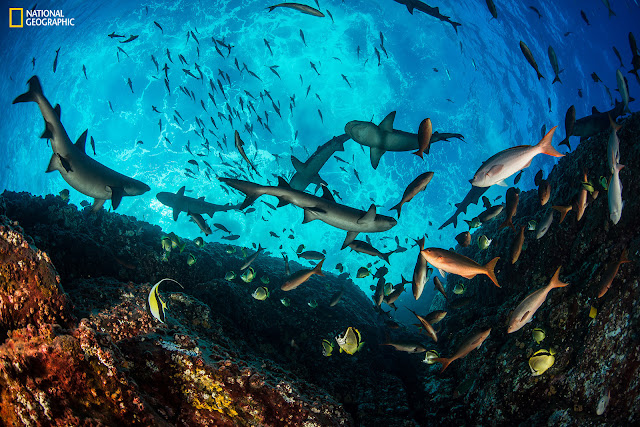With the planet facing an exploding population and unprecedented levels of biodiversity loss, National Geographic Society Executive Vice President and Chief Scientist Dr. Jonathan Baillie and Vice President of the Chinese Academy of Sciences Dr. Ya-Ping Zhang urged the world's governments to dramatically scale up global conservation targets. They detailed their opinions in an editorial published in the latest issue of Science.
"Current levels of protection do not even come close to the required levels," wrote Baillie and Zhang, who encouraged governments to set minimum targets to protect 30 percent of the Earth's oceans and lands by 2030, and 50 percent by 2050, with a particular focus on areas of high biodiversity. "This will be extremely challenging, but it is possible, and anything less will likely result in a major extinction crisis and jeopardize the health and well-being of future generations."
The targets are significantly higher than the Aichi Biodiversity Targets set at the 2010 Nagoya Conference of the Parties to the Convention on Biological Diversity, where governments agreed to protect 10 percent of oceans and 17 percent of land by 2020.
"The trends are going in the right direction, and we applaud the countries that have made significant strides," said Baillie. "But we must accelerate the pace of protection in order to achieve a planet in balance — one that provides for humanity and the multitude of species with which we share the Earth."
Distinguished scientists support the call to increase global biodiversity targets. They include Dr. E.O. Wilson, one of the world's preeminent evolutionary biologists and the leading advocate of the Half-Earth Project — an initiative devoted to setting aside half of the Earth for conservation; and Dr. Thomas Lovejoy, an internationally renowned conservation biologist, widely known as the "godfather of biodiversity," and a National Geographic Fellow.
Wilson said, "It is true that if we turn our backs on the current species extinction crisis, the consequences for the planet will be dire. It is also true that it is within our powers, as humans and nations, to direct our own salvation. If we follow the Half-Earth call to action and protect 50 percent of our lands and seas, we'll safeguard at least 85 percent of species and reverse this crisis. We must work together to learn more about Earth's species and move quickly to protect them before they disappear forever. I encourage the world's governments to commit to conserving at least half the Earth. To strive against the odds on behalf of all life would be humanity at its most noble."
 |
| Spix's macaw, native to Brazil, is critically endangered. (Image via National Geographic) |
The Aichi Targets are a 10-year framework to save biodiversity and enhance its benefits for all people. The strategy includes halting species extinction, halving habitat loss and reducing pollution and overfishing by 2020. Baillie and Zhang want governments to set the higher targets at the Convention on Biological Diversity in Beijing, China, in 2020.
"This is the level of ambition we need because this is the last chance to secure a functional living planet for people and other forms of life," Lovejoy said.
SOURCE: National Geographic Society



















